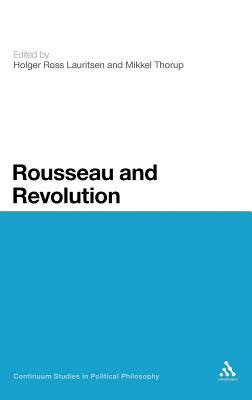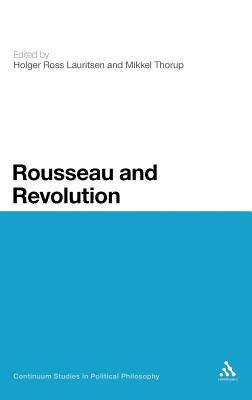
- Retrait gratuit dans votre magasin Club
- 7.000.000 titres dans notre catalogue
- Payer en toute sécurité
- Toujours un magasin près de chez vous
- Retrait gratuit dans votre magasin Club
- 7.000.0000 titres dans notre catalogue
- Payer en toute sécurité
- Toujours un magasin près de chez vous
Rousseau and Revolution
339,45 €
+ 678 points
Description
The political philosophy of the 18th century philosopher Jean-Jacques Rousseau has long been associated with the dramatic events of the French Revolution. In this book, an international team of scholars has been brought together to examine the connection between Rousseau's thought and the revolutionary traditions of modern Europe.
The book explores Rousseau's own conceptions of violence and revolution in contrast to those of other thinkers such as Hegel and Fanon and in connection with his ideas on democracy. Historical analyses also consider Rousseau's thinking in light of the French Revolution in particular and the European revolutions that have followed it. Across the eleven chapters the book also touches on such issues as citizenship, activism, terrorism and the State. In doing so, the book reveals Rousseau to be an important source of insight into contemporary political problems. The political philosophy of the 18th century philosopher Jean-Jacques Rousseau has long been associated with the dramatic events of the French Revolution. In this book, an international team of scholars has been brought together to examine the connection between Rousseau's thought and the revolutionary traditions of modern Europe. The book explores Rousseau's own conceptions of violence and revolution in contrast to those of other thinkers such as Hegel and Fanon and in connection with his ideas on democracy. Historical analyses also consider Rousseau's thinking in light of the French Revolution in particular and the European revolutions that have followed it. Across the eleven chapters the book also touches on such issues as citizenship, activism, terrorism and the State. In doing so, the book reveals Rousseau to be an important source of insight into contemporary political problems.Spécifications
Parties prenantes
- Editeur:
Contenu
- Nombre de pages :
- 224
- Langue:
- Anglais
- Collection :
Caractéristiques
- EAN:
- 9781441128973
- Date de parution :
- 15-09-11
- Format:
- Livre relié
- Format numérique:
- Genaaid
- Dimensions :
- 156 mm x 234 mm
- Poids :
- 489 g

Les avis
Nous publions uniquement les avis qui respectent les conditions requises. Consultez nos conditions pour les avis.





